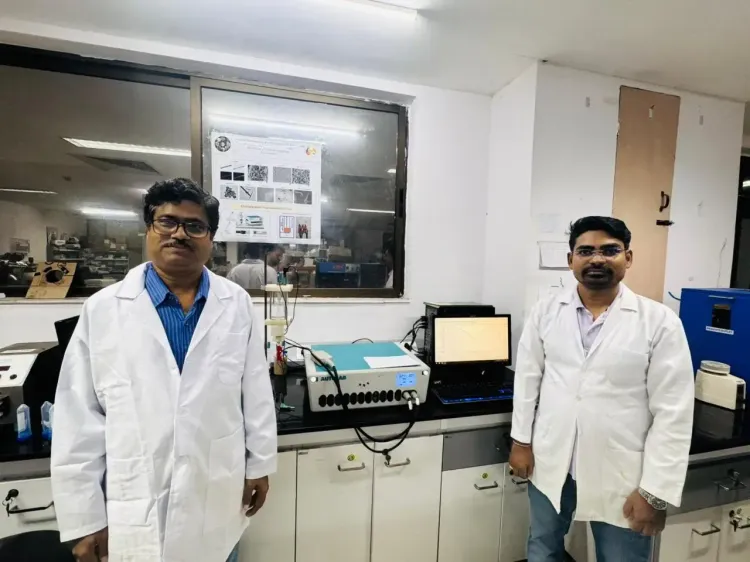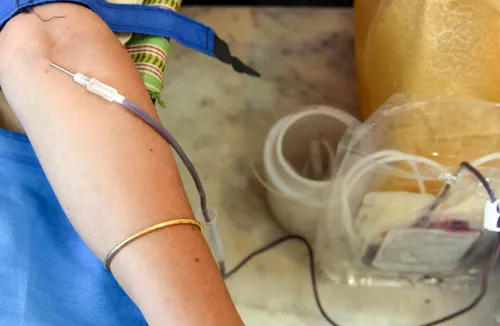Can IIT Guwahati's Advanced Epoxy Coating Safeguard Steel Structures in Seawater?

Synopsis
Key Takeaways
- Advanced epoxy coating developed for marine applications.
- Utilizes RGO, ZnO, and PANI for enhanced protection.
- Demonstrates superior performance over traditional coatings.
- Promising for offshore and coastal infrastructure longevity.
- Further testing and validation required before commercialization.
New Delhi, Nov 26 (NationPress) Researchers at the Indian Institute of Technology (IIT) Guwahati have engineered a corrosion-resistant epoxy coating aimed at safeguarding steel structures that are subjected to seawater and high-salinity conditions.
Corrosion is an inevitable and progressive phenomenon that compromises metal surfaces, thereby diminishing the lifespan of critical infrastructures, especially those in saltwater settings such as offshore platforms, coastal bridges, port facilities, and marine pipelines.
This issue also contributes to environmental degradation and adversely affects both human and aquatic ecosystems.
While barrier coatings are commonly employed for corrosion prevention, they fail to offer complete protection as they develop minute defects over time, permitting moisture and salts to infiltrate and harm the underlying metal.
To combat this issue, the researchers at IIT Guwahati integrated reduced graphene oxide (RGO), zinc oxide (ZnO), and polyaniline (PANI) into a single epoxy coating tailored for marine corrosion resistance.
The innovative nanocomposite was synthesized by bonding zinc oxide nanorods to reduced graphene oxide and subsequently encasing this structure with polyaniline. The resulting composite was incorporated into an epoxy coating and assessed through various characterization techniques.
The newly developed epoxy coating demonstrated superior performance when compared to conventional epoxy. It established a denser and more uniform barrier, exhibited enhanced adhesion to the steel surface, and effectively slowed the penetration of corrosive elements.
These attributes render it suitable for applications in marine infrastructure, offshore facilities, shipbuilding, coastal pipelines, and other steel structures that must endure constant exposure to saltwater, as noted by the researchers in their paper, published in the Advanced Engineering Materials journal.
“The integration of RGO-ZnO-PANI nanocomposite into the epoxy coating provides a promising approach for achieving long-lasting corrosion resistance in challenging marine environments. We are currently focusing on evaluating the long-term durability, real-world performance, and life-cycle impact of this coating,” stated Prof. Chandan Das.
This discovery contributes to ongoing investigations into corrosion-resistant materials and paves the way for enhancing the reliability and lifespan of structures operating in marine and high-salinity environments.
The research team acknowledged that the study is in its laboratory phase, and the findings require further validation before they can be deemed final or ready for commercial use.










